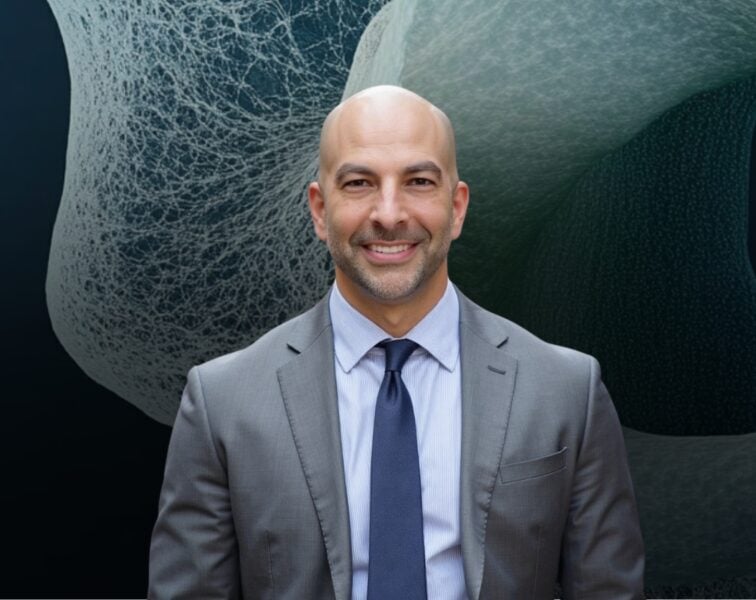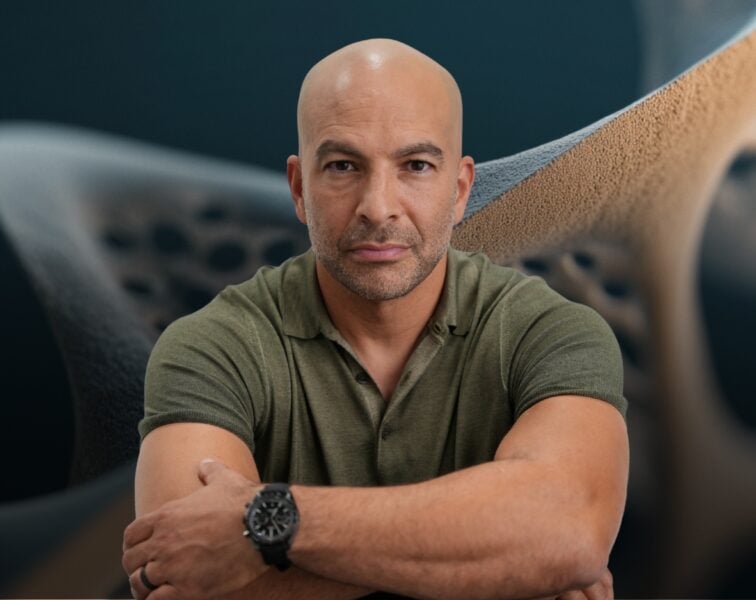In this special episode of The Drive, Peter discusses a variety of topics, breaking away from the typical deep-dive format to explore a wide range of common questions submitted by listeners. Peter tackles subjects like the viability of living to 120 and beyond, addressing some of the optimistic theories regarding achievement of this remarkable feat. Peter then shares his drug and supplement regimen while emphasizing how individualized these protocols need to be. The conversation also touches on lowering apoB, the long-term use of statins, the myth of good vs. bad cholesterol, the complexities of nutrition research, the quest for the ideal diet, and Peter’s strategies for hitting daily protein goals. Peter finishes with a discussion about his favorite health-tracking wearables, the role of CGM in non-diabetics, and more.
Subscribe on: APPLE PODCASTS | RSS | GOOGLE | OVERCAST | STITCHER
We discuss:
- Overview of topics and previous episodes of a similar format [2:45];
- The viability of living to 120 and beyond: addressing some of the optimistic theories [4:45];
- The potential of mTOR inhibition as a mid-life intervention, and longevity potential for the next generation [13:30];
- A framework for thinking about geroprotective drugs and supplements in the context of a lack of aging biomarkers [17:00];
- Supplements Peter takes and how his regimen has changed in the last year [26:15];
- Pharmacologic strategies to lower ASCVD risk, the limitations of statins, nutritional interventions, and more [36:15];
- Misnomers about cholesterol [48:00];
- Why nutritional research is so challenging, some general principles of nutrition, and why Peter stopped doing prolonged fasts [50:45];
- Optimizing protein intake [59:45];
- Wearables for sleep and exercise, continuous glucose monitors (CGM), and a continuous blood pressure monitor on the horizon [1:04:45]; and
- More.
Get Peter’s expertise in your inbox 100% free.
Sign up to receive An Introductory Guide to Longevity by Peter Attia, weekly longevity-focused articles, and new podcast announcements.
Overview of topics and previous episodes of a similar format [2:45]
- Today’s episode is going to be kind of like an AMA style but the entire audio/video will be available to everyone
- There have been popular episodes in this format in the past such as:
- In this case, the team instead pulled some of the most frequently asked questions that have come through the website including questions Peter traditionally doesn’t like to answer
The viability of living to 120 and beyond: addressing some of the optimistic theories [4:45]
Why do you think it’s important to act and live like we might only get to 90-years-old?
- This is a bit of a complicated question
Why does Peter not have confidence in biohacking your way to 120, 150, 180?
- He doesn’t think we have the tools to address the underlying aspects of the aging of biology that are relentlessly pushing us towards the end of our lives
- That’s not a depressing statement; it’s just an obvious reality, right?
There are things about us, as we age, that we have the capacity to reduce the rate of change on (we can slow them down), but he’s seen no real evidence that we can reverse them in a meaningful way
- It’s true that there are some people out there claiming they’ve got their aging clock, and it shows that even though their birth certificate says they’re 60, they’re really 35
- We could put some time into explaining why that’s not correct
- The long and short of it is we don’t have any evidence that we can take the diseases of aging and erase them, or that we can take the underlying processes of everything from defects in mitochondrial function, defects in protein folding and misfolding, changes in DNA breaking and repair, breakdown in nutrient sensing, all of these pathways
- Peter hasn’t seen any evidence that we can undo that
So then what would you have to believe?
- If you’re going to believe someone my age (50) is going to be around in 70 years, you have to believe that in the next dozen years or so, someone is going to come up with a way to completely halt aging and/or reverse it
- In other words, it’s not going to be any good if this happens 50 years from now, because in 50 years, Peter probably won’t be here
- Peter spends a lot of his time looking at this type of literature, looking at at this technology
- He hasn’t seen many examples where there’s a bigger mismatch between what is actually happening scientifically and what is being talked about in the press, on social media, on podcasts
- That chasm is enormous
- What’s really happening is nowhere near the sci-fi that’s being portrayed
- Peter has confidence that what’s actually happening is more a representation of reality—which is that these things are not a decade away
- And that’s why he takes this point of view
Why does all of this matter?
- Because if you knew that this was as good as it’s going to get…
- And by the way, Peter doesn’t think it is
- He thinks there are incremental things that are going to make a difference, even in the lives of people more his age
- If take the view that this is as good as it gets, it would motivate you to be more serious about using the tools that we have today for primary and secondary prevention of disease
- For optimizing and maximizing lifespan and healthspan
- If for no other reason, you would do that as a hedge against the enormously long odds that something dramatic and miraculous is going to happen in the next decade or two
When you were talking early on about diseases, were those diseases what you call the four horsemen from your book?
- Yes
- You still have to have a strategy that says, how are you not going to die of ASCVD, cancer, neurodegeneration/ dementia, and [metabolic disease]
- The only one where Peter can see a pretty clear path to delay it significantly would be ASCVD
- And that’s if you take really dramatic steps early in life
- Instead of talking about what we think of as primary prevention, think of ultra-primary prevention
- Treating people in their 30s
- Making sure a person never ever walks around with an apoB over 30 or 40 mg/dL
- Making sure a person doesn’t even spend one year with mild hypertension
- Making sure a person is always metabolically healthy
- If you do that, you would not get atherosclerosis in a normal lifespan
- But we don’t have that degree of certainty for pushing off cancer indefinitely
- Nor do we have that degree of certainty for pushing off neurodegeneration indefinitely, dementia, sarcopenia, or arthritis
- Sarcopenia and arthritis are not as interesting to think about because they don’t rise to the level of the horseman, but they matter a lot
- Physical frailty is a really, really, really big one
If you manage to not die of heart disease, cancer or neurodegeneration, dementia, and you’re willing to train really hard, Peter thinks there’s a path to be physically robust as a centenarian
- But he doesn’t see a path to doing that at 120 or 150, unless there is a significant technological breakthrough that would basically allow us to rewind
- And maybe this is a different/longer discussion
- And that’s a little off topic, but it really gets into:
- What does it mean to age at a cellular level?
- What is the role of the epigenome in regulating our genetic code?
- Nick knows that has been talked about a little bit in the episode with David Sabatini and Matt Kaeberlein, and so maybe we’ll pull questions from there and do a future AMA diving into that a little deeper
Nick’s takeaway:
- We will succumb to the same diseases that will kill us
- Your goal with Medicine 3.0 and prevention is still to put that off as far as possible, but that doesn’t mean you’re going to put it off until you’re 120-years-old
- The goal is to really live as robustly as possible and avoid those [diseases] as long as you can, but still more in the traditional lifespan, as opposed to the 150 year old lifespan
“I think that taking all of the steps that I talk about in the book could seriously add a decade to life.”‒ Peter Attia
- Peter thinks you can live 1.5-2 decades longer, but we’re not talking about adding 30-50 years to lifespan
What is more interesting and more important (whether your adding 5, 7, or 10 years to your lifespan), is reducing/compressing the period of morbidity late in life
- People should fixate on, “How do I not be really, really frail both physically and cognitively in the last decade of my life, what Peter calls the marginal decade?”
- Peter doesn’t feel like he has as much control over the question, “Will I live till I’m 85, 90, or 95?”
- There are some elements of bad luck that factor into that
What Peter feels like he has more control over when he’s in his marginal decade:
- Can he still go for a ruck?
- Will he carry 80 lbs on said ruck? (no way)
- He might be able to carry 10-20 lbs
- Will he be able to swim half a mile in a pool? (yeah)
- Will he be able to swim it as fast as he can now? (no chance)
- Could he sit on the floor and get up on his own?
- These are the things he talked about in the centenarian decathlon (episode #261)
Those are the things we want to relentlessly fixate on, because Peter thinks most people would rather live to 90 and die of a heart attack while swimming in the ocean (but otherwise be in remarkable shape) than live to 120 and spend the last 30 years unable to do much
The potential of mTOR inhibition as a mid-life intervention, and longevity potential for the next generation [13:30]
What are a few of those things that could help someone even at age 50 live longer?
{end of show notes preview}
Would you like access to extensive show notes and references for this podcast (and more)?
Check out this post to see an example of what the substantial show notes look like. Become a member today to get access.



